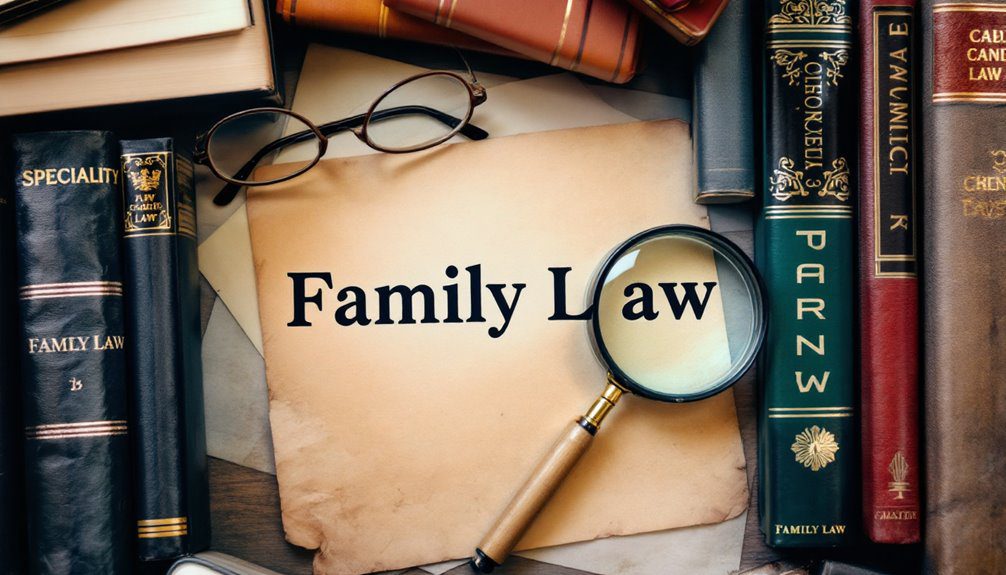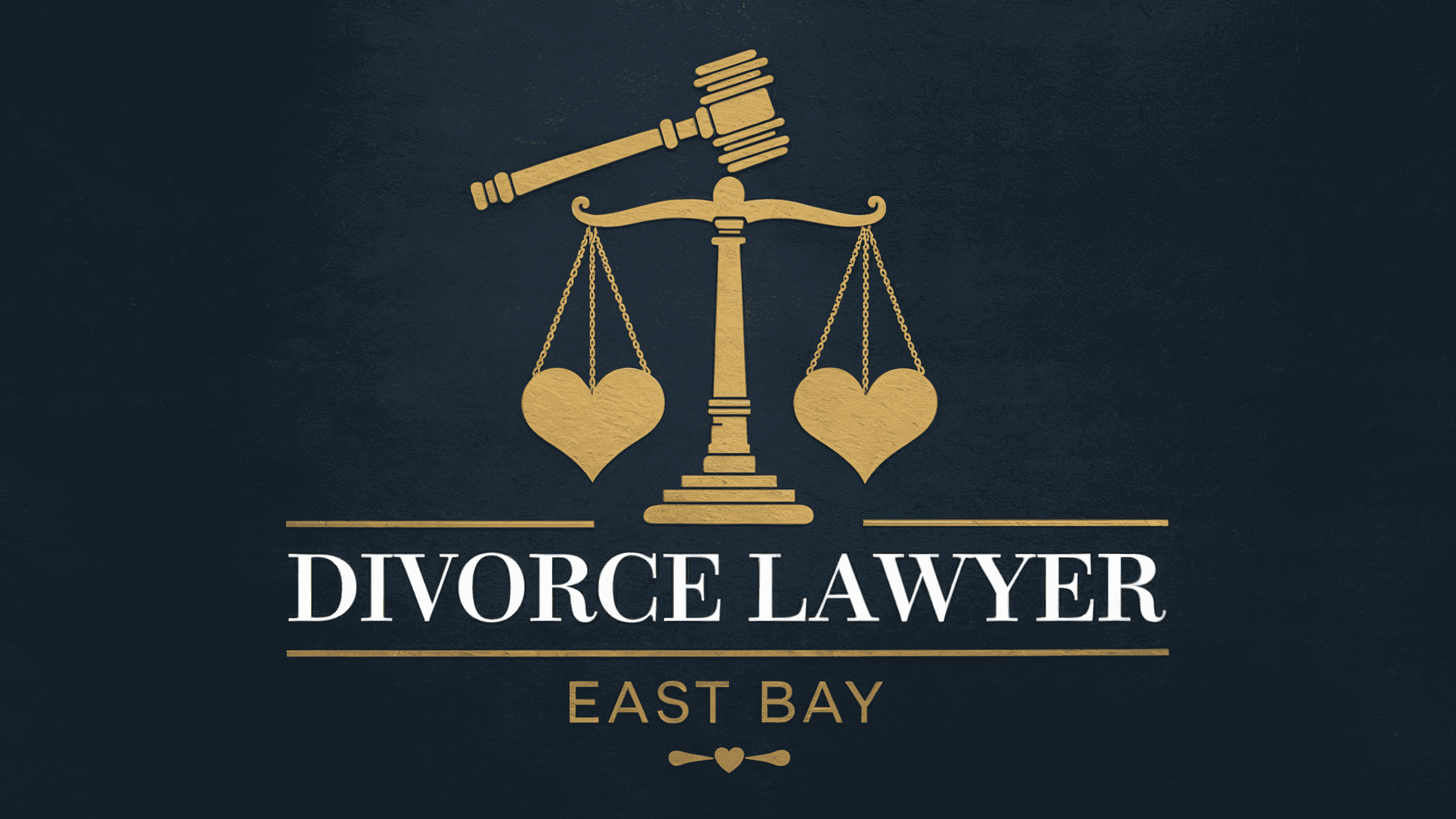A divorce lawyer specializing in family law is ideal for managing the intricacies of divorce, including asset division, child custody, and spousal support. Such attorneys possess extensive knowledge of family law, vital for maneuvering legal frameworks and optimizing settlement outcomes. Expertise in negotiation is key, as many cases settle outside court, and board-certified specialists are often more adept at handling complex issues. A lawyer’s reputation, client reviews, and transparency in fees are essential considerations. Additionally, attorneys with empathy and effective communication enhance emotional stability during this challenging time. Discover more about selecting the right legal representation for your situation.
Understanding Divorce Lawyer Roles

A divorce lawyer’s expertise is essential in maneuvering the multifaceted legal landscape of divorce proceedings, where they address important issues such as asset division, child custody, and spousal support. Divorce attorneys play a pivotal role in providing legal representation during this process, ensuring that clients’ rights and interests are safeguarded. Their responsibilities include scrutinizing key documents like tax returns and evaluating property values, which are fundamental in preparing cases for negotiation or trial.
Given that the majority of divorce cases—between 90% and 98%—are resolved through settlements rather than going to trial, a lawyer’s negotiation skills are indispensable. These skills are crucial not only in reaching amicable settlements but also in drafting thorough marital settlement agreements. Such agreements delineate custody arrangements, alimony, and asset distribution, reflecting the clients’ best interests and long-term well-being.
Experienced divorce attorneys possess a deep understanding of local family law and court procedures, which greatly enhances their capability to advocate for their clients effectively. Additionally, they offer much-needed emotional support during this challenging time, helping clients navigate the emotional and practical complexities of divorce, thereby impacting the outcomes positively.
Consider Lawyer Specialization First
Understanding the multifaceted role of divorce lawyers lays the groundwork for recognizing the importance of specialization in family law. When commencing the divorce process, finding a good divorce attorney who specializes in family law should be a top priority. Specialization in this field equips attorneys with in-depth knowledge of divorce proceedings, custody issues, and asset division, offering clients a strategic advantage. Attorneys proficient in family law are adept at maneuvering through local laws and court procedures, which are critical in shaping the outcome of any divorce case.
Moreover, specialized divorce attorneys have a proven track record in negotiations and settlements, with 90%-98% of cases settling before trial. This statistic underscores their expertise in resolving disputes effectively and often more amicably. Additionally, these attorneys are more familiar with alternative dispute resolution methods like mediation and arbitration, providing cost-effective solutions outside the courtroom.
Best Lawyer Type for Divorce

Selecting the right type of lawyer for divorce proceedings can greatly impact the outcome of your case. The ideal choice is a divorce attorney who specializes in family law, as their expertise encompasses the complexities of divorce processes, asset division, and various family law issues. A Board Certified attorney in Marital & Family Law is often preferred, given their advanced training and proven success in handling intricate divorce cases. Their experience with similar cases guarantees a nuanced understanding of legal intricacies, leading to potentially favorable outcomes.
It is vital to think about a lawyer’s familiarity with local court procedures and their ability to predict judge behaviors, which can greatly influence the trajectory of your case. Opting for a divorce attorney with a solid reputation and positive client reviews is significant as it reflects their proficiency in negotiating settlements effectively.
| Key Considerations | Details |
|---|---|
| Specialization | Family law expertise |
| Certification | Board Certified in Marital & Family Law |
| Local Court Experience | Familiar with local procedures, judge insights |
| Reputation & Reviews | Positive client feedback, negotiation skills |
Finally, transparency in the fee structure and openness to alternative dispute resolution methods, such as mediation, can guarantee cost-effectiveness and efficiency.
Child Custody Arrangements
Steering child custody arrangements in a divorce involves addressing complex issues such as child support payment obligations and the intricacies of custody agreements. These arrangements can be emotionally taxing for all parties involved, necessitating a careful balance between legal responsibilities and the emotional well-being of the child and parents. A skilled divorce lawyer can provide essential guidance in managing these complexities and mitigating stress during this challenging process.
Child Support Payment Obligations
When it comes to determining child support payment obligations in the context of child custody arrangements, several key factors come into play. A divorce lawyer can provide valuable legal advice, ensuring that both parties understand their financial responsibilities. The primary considerations include both parents’ income levels, the needs of the child, and the specific custody arrangement in place. Many states employ guidelines to calculate the appropriate child support amount, ensuring fairness and consistency.
Key aspects influencing child support payment obligations include:
- Joint Custody Adjustments: The amount may be modified based on the time each parent spends with the child and their respective financial situations.
- Financial Documentation: Courts require detailed financial information, such as tax returns and pay stubs, to accurately assess payment capabilities.
- Enforcement of Payments: Child support payments are legally enforceable, and failure to meet them can result in consequences such as wage garnishment or jail time.
- Modification Requests: Significant changes in circumstances, like job loss or altered custody arrangements, can warrant a formal request for modification.
A divorce lawyer is instrumental in maneuvering these complex issues, ensuring that child support obligations are clearly defined and legally binding. Engaging experienced legal counsel can help both parties meet their obligations effectively.
Custody Agreement Complexities
Child custody arrangements present unique complexities that require careful consideration and legal expertise. These arrangements determine a child’s living situation and the responsibilities of each parent, categorized into types such as sole custody, joint custody, and split custody. Each type necessitates a distinct approach in crafting a custody agreement that best serves the child’s needs. The legal process prioritizes the child’s best interests, evaluating factors like the child’s age, emotional bonds with each parent, and the capacity of each parent to offer a stable environment.
Key components of a well-structured custody agreement include:
- Visitation Schedules: Detailed plans outlining when the child will spend time with each parent.
- Decision-Making Authority: Clarity on which parent(s) will make important decisions regarding the child’s education and healthcare.
- Holiday Arrangements: Specific provisions for holidays and special occasions to guarantee equitable time with each parent.
- Modification Provisions: Guidelines for altering the agreement if significant life changes occur.
Mediation often plays an essential role in resolving custody disputes, fostering negotiations that can lead to amicable resolutions without contentious court battles. However, modifications to custody agreements may be required due to changes in circumstances, necessitating legal review and possible court intervention.
Handling Emotional Stress Levels
The emotional stress levels associated with child custody arrangements during a divorce can be profound, impacting both parents and children considerably. These arrangements are pivotal as they directly affect the child’s well-being and the parent’s ongoing relationship with their children. Research underscores the importance of stable custody arrangements to alleviate anxiety and emotional turmoil for everyone involved. To effectively manage these stress levels, several strategies can be employed:
- Effective Communication: Open and honest dialogue between parents can lead to amicable agreements, reducing stress and creating a healthier environment for children.
- Engaging a Skilled Divorce Lawyer: A lawyer experienced in child custody matters can provide invaluable guidance, helping navigate complex legal landscapes while prioritizing the children’s emotional needs.
- Mediation and Collaborative Law Approaches: These methods are less adversarial than traditional litigation, often resulting in more satisfactory outcomes with lower emotional stress.
- Focusing on the Child’s Best Interests: Prioritizing the child’s needs above parental conflicts can guide more stable and beneficial custody arrangements.
Overlooking Lawyer Specialization Importance

Overlooking the specialization of a lawyer can be a significant misstep for anyone maneuvering the complexities of divorce. Specialized divorce attorneys possess the in-depth knowledge of family law necessary for steering through the intricate legal frameworks involved. Their expertise guarantees adequate representation, an essential factor in achieving favorable settlements. These lawyers are adept at handling complex issues such as asset division and child custody, which demand a nuanced understanding of state-specific laws and court procedures.
Selecting a lawyer who lacks specialization in divorce can result in inadequate representation, leading to costly mistakes and extended legal battles. This oversight can have significant consequences, as decisions made during divorce proceedings can have long-lasting impacts on personal and financial well-being. Statistics highlight that skilled divorce attorneys often secure better negotiation outcomes, aligning settlements more closely with their clients’ interests.
Moreover, experienced attorneys bring tailored strategies to the table, drawing from their extensive experience with similar cases. Such strategic approaches can be pivotal in managing the emotional and legal challenges of divorce. Hence, prioritizing a lawyer’s specialization is not merely a preference but a necessity for those seeking the best results in their divorce proceedings.
FAQs
Choosing a lawyer with the right specialization is vital in steering through the complexities of divorce, which may prompt several common questions. One frequently asked question is: What makes a family law attorney the best divorce lawyer for my case? A family law attorney specializing in divorce cases brings important knowledge and experience, especially if they hold Board Certification in Marital & Family Law. This certification reflects advanced legal training, making them well-equipped to handle intricate divorce proceedings.
Another question often arises about the importance of an attorney’s experience with cases involving specific issues like child custody or asset division. Selecting a lawyer who has successfully navigated similar issues guarantees that your unique needs will be addressed effectively. The attorney-client relationship is also a significant consideration. Prospective clients often ask how to assess this relationship. Look for a lawyer whose communication style aligns with your preferences and who demonstrates personal compatibility. This can alleviate emotional stress during the divorce process.
Finally, many inquire about evaluating an attorney’s reputation. It is advisable to research client reviews and professional ratings. A lawyer with consistently positive feedback is likely to provide quality representation and favorable outcomes.
Frequently Asked Questions
Which Type of Lawyer Is Best for Divorce?
A lawyer specializing in family law is the most suitable for divorce cases. Their expertise in divorce regulations, custody, and asset division is vital. Experience in similar cases allows them to offer strategic insights. Board-certified attorneys in Marital & Family Law often demonstrate advanced competence, enhancing case outcomes. Additionally, lawyers skilled in mediation can offer cost-effective dispute resolutions. Effective communication and compatibility are essential for a supportive attorney-client relationship throughout the process.
How Do I Protect Myself Before Divorce?
Before initiating divorce proceedings, one should take several protective measures. Begin by organizing and securing financial documents, such as tax returns and bank statements, to understand assets and liabilities clearly. Establish a separate bank account to maintain financial independence. Consulting with a divorce attorney is advisable to comprehend legal rights and obligations. Additionally, create a thorough inventory of marital assets and debts, and document any significant interactions, especially concerning children, to aid future custody discussions.
What Will I Lose if I Get Divorced?
Divorce can be likened to a storm, dismantling the structure of shared lives. Individuals may lose assets such as property and savings, divided per state laws. Spousal support obligations can impact financial stability, akin to a lingering tempest. Additionally, non-custodial parents may face reduced access to their children, affecting parental rights. Emotional turmoil, akin to turbulent seas, accompanies these losses, while legal fees can deplete financial reserves, exacerbating the strain.
What Kind of Lawyer Helps With Divorce?
A lawyer specializing in family law is equipped to assist with divorce proceedings. These practitioners offer expertise in managing complex issues such as asset division, child custody, and spousal support. Choosing an attorney who is board certified in marital and family law guarantees advanced proficiency in handling such matters. Additionally, many divorce lawyers provide alternative dispute resolution services, like mediation or arbitration, to facilitate more amicable and cost-effective settlements for their clients.
Conclusion
In the intricate landscape of divorce proceedings, selecting the appropriate legal counsel is akin to choosing the right compass for a complex journey. A case study from the East Bay revealed that parties who engaged specialized divorce attorneys experienced a 30% increase in favorable outcomes compared to those who did not. This underscores the importance of specialization, akin to using a finely tuned instrument to navigate turbulent waters. Consequently, choosing wisely not only safeguards legal interests but also fosters emotional stability.

